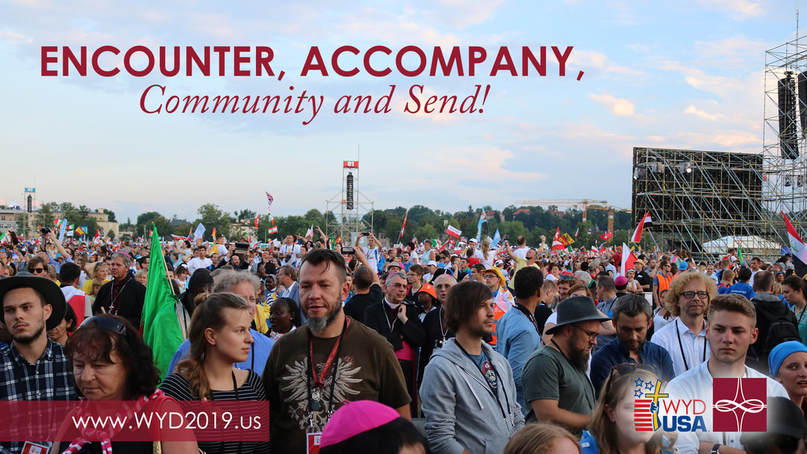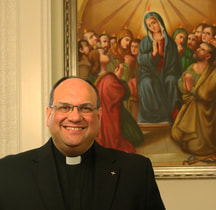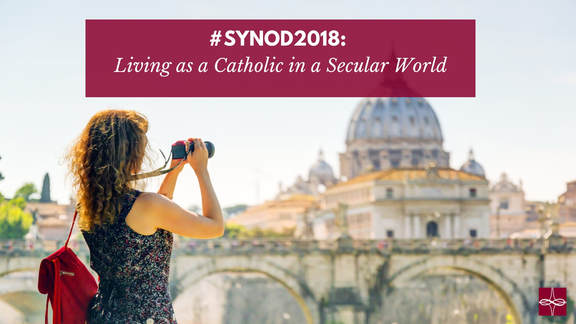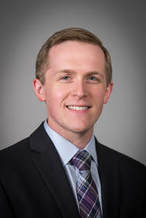|
Before any major event, we need to prepare. A student needs to study for an exam. A runner must practice before running a marathon. A bride and groom plan out the intricate details of a wedding day. A mother and father decorate the nursery before their baby is born. As you anticipate the festivities of World Youth Day (WYD) 2019, you must also prepare yourselves spiritually for the event that is about to take place. You need to get yourself into the right mindset in order to be open and to fully experience all that WYD 2019 will have to offer, whether you are traveling to Panama, attending a stateside event, or participating digitally. We are preparing to: Encounter, Accompany, Live Community, and Send! Encounter There are many ways in which leaders and pilgrims alike will experience the act of encounter when they are participating in a World Youth Day celebration. The most important encounter that leaders or pilgrims will experience is the encounter with Jesus Christ. We are able to encounter Jesus Christ through the Sacraments, through scripture and prayer, through service, and through our relationships with others. The WYD experience provides for ample opportunities for the encounter with Jesus Christ particularly through Masses, catechesis sessions, and through building and developing relationships with your fellow pilgrims and leaders. Accompany As a pilgrim, you will need to accompany your fellow pilgrims during this journey. Be there to support and encourage each other on the road. The act of accompanying furthermore requires a pilgrim leader to maintain a delicate balance of not only providing support and encouragement, but also allowing your pilgrims to encounter Jesus Christ in their own way. You need to be there to support your pilgrims, but you also need to let them figure things out themselves. But you are not doing this alone. As a leader, you are accompanied by your pilgrims, your parish, your diocese, your community, your family, all of those also participating in WYD2019, and the Church as a whole. For leaders and pilgrims alike, one important thought to keep in mind about the act of accompanying is that you need to meet people where they are. You cannot expect anyone to be exactly where you are on the journey due to everyone’s different life stories and challenges. Pray for an openness to support those around you in the way they need best. Your accompaniment can lead others into deeper life in Christ in and through the community of faith, the Church. Live Community Nothing that we do as Catholics is done simply alone. We are in relationship with God, the communion of the Most Holy Trinity. We are part of the community of faith that we call the Church. The point of common bond with one another no matter where one is from at WYD2019 events is rooted in this community. We move beyond simply ourselves and into deeper communion with the global Church. “Fellowship and communion with one another in the community of faith is also a reflection of the Trinity” (Living as Missionary Disciples: A Resource for Evangelization, 16). You as leaders and pilgrims need to live community deeply during the time of WYD2019. It is not simply a trip, but an opportunity to more fully encounter Christ in the community of faith. While we are always rooted in community, God also sends us forth on mission to a world that needs our witness of the love and mercy of Christ, especially after WYD2019. Send World Youth Day 2019 isn’t over on January 27, 2019. It continues on through your experiences and your enthusiasm long after your flight has landed back from Panama or you have returned home from your local stateside event. You must share your stories with your friends and those in your parish to enliven them with the gift of the Holy Spirit that you received at your event. You must continue on the journey as a missionary disciple. As Pope Francis tells us in Evangelii Gaudium, “Every Christian is a missionary to the extent that he or she has encountered the love of God in Jesus Christ: we no longer say that we are ‘disciples’ or ‘missionaries’, but rather that we are always ‘missionary disciples’” (120). Once we experience the great love of Jesus Christ, we must go forth and share that good news with those around us. We are inspired by the example of Pope Francis as well as the patron saints of World Youth Day to do so. We invite you to continue to prepare for this journey on which you are about to embark. Take a look at the USCCB’s World Youth Day page and the Catholic Apostolate Center’s World Youth Day Portal. Read through the guides for stateside pilgrimage leaders and for international pilgrimage leaders for more about Encounter, Accompany, Live Community, and Send.
0 Comments
Evangelization is a timeless vocation for all Christians. In our modern world, secularism surrounds us and sometimes it feels as though our Church can barely get in a word. Because of this, the current Synod on Young People, the Faith, and Vocational Discernment could not have come at a more needed time. Isaiah 6:8 says, “Then I heard the voice of the Lord saying, ‘Whom shall I send? Who will go for us?’” Isaiah responds, “Here I am…send me!” As the youth of the Catholic Church, we are the present and future of the Church. We are called to exclaim “Send me!” and to spread the Good News of our Lord and Savior, Jesus Christ, yesterday, today, and always! However, it would be foolish if we thought that every young person innately felt and understood this call. The secular world has had an impact on my faith, beginning in my own home. Not every member of my family is a practicing Catholic, which has given my mother and me the opportunity to evangelize in our own house. A prime example of this is praying before meals. I was taught to pray before meals in high school and I continue to do so in college. When I came home for the first time during my first year of college, I struggled to pray before meals because I feared someone noticing me or judging me. Eventually, God gave me the strength to begin to share this prayer with my family and now it is a tradition that we have established together. When he addressed young people at a meeting in the beginning of October (which I attended), Pope Francis said, “Make your way. Be young on the move, looking at the horizons, not the mirror. Always looking forward, on the way, and not sitting on the couch.” Our Holy Father reminds us in these words that our time is now to be consistent in our faith, live the Beatitudes, and serve one another in an effort to help each other grow. “How can I do this?” you might ask. As Pope Francis said, the Synod Fathers will—and have already begun—to answer you. In the synodal document Instrumentum Laboris under the section titled Beyond Secularization, the Synod Fathers speak about the changing view of religion in the secular world. Quoting a Bishops’ Conference, the document states, “Many young people declare that they are looking for the meaning of life, pursuing ideals, searching for their own personal spirituality and faith, but they rarely turn to the Church.” Recognizing that every young person’s path towards the Church is different, the Synod Fathers propose that we focus on the “changed attitude towards religion,” moving away from a “liquid” form of faith to a more concrete belief. Pope Francis uses the same metaphor in his response to the young people at the Synod rally I attended. He said, “Every road you make, to be reliable, must be concrete.” He continues, reminding us that “concreteness is the guarantee to move forward.” Every day, we have concrete encounters with our surrounding world. How can we as Catholics take our faith and make it concrete to those around us? This call from Pope Francis reminded me that my everyday experience of studying in Rome (only a short walk from the Vatican) can be used in my own acts of daily evangelization, especially when I return to the United States. Sharing a concrete experience is “making a gift of oneself and participating in the proclamation of the Good News,” as the Preparatory Document for the Synod states. We, as young people, are the present and future of the Church. She needs us to go out and make a difference. The salvation offered by Christ enables us to rejoice in this world, and the best way to do that is to spread His glory. Be concrete in your faith and you shall “renew the face of the earth.” For more resources on the ongoing Synod, please click here. To learn what it means to be a missionary disciple, please click here. “But this I will call to mind; therefore I will hope: The Lord’s acts of mercy are not exhausted, his compassion is not spent; They are renewed each morning—great is your faithfulness!”
-Lamentations 3:21-24 Reflecting on the theme for this year’s Mid-Atlantic Congress—"Hope”—I feel as though the idea of hope seems a radical one to even consider today. Every morning, we’re confronted with more bad news: refugees, war, political espionage, starvation, violent crime, and even mass shootings in our own communities. It’s enough to make you throw up your hands and cry out, “Just make it stop!” And that’s exactly why we need hope. With the current state of the world, focusing on the theme of hope is one of the most important things we can do as a community of faith. We often hear that things are in crisis: the family, the Church, our nation, our whole world. But what we encountered at MAC this year looked nothing like crisis. In fact, it looked very much like hope. In our conversations with participants, the Catholic Apostolate Center staff witnessed a fire that, in charity and love, seeks to transform the world with the good news of the Gospel. And while it’s easy to get caught up in the excitement of being surrounded by passionate and hard-working people, there are ways we can carry that hope and momentum forward into our parishes and communities. The Catholic Apostolate Center participated in four presentations this year at the Mid-Atlantic Congress. In our presentation discussing Living as Missionary Disciples, the U.S. Bishops’ guide for pastoral planning, we were able to provide basic principles of missionary discipleship and evangelization. We talked about where the Church in the United States is heading with its evangelization and pastoral planning efforts and together brainstormed practical ways to implement these ideas in our own parishes and dioceses. By collaborating with other members of the Church, and helping to form missionary disciples, our work can change the narrative of hopelessness we often see in the world. The Center also engaged in fruitful conversation about how to equip young adults to enter into the mission the Church calls us to: becoming missionary disciples, or everyday evangelizers. The session highlighted work being done in several archdiocesan and post-collegiate formation programs, such as Apostles on Mission. We also reflected on the importance of fostering a greater sense of vocational discernment among young adults—a theme on which the Church will continue to reflect in the upcoming Synod on Young People, the Faith, and Vocational Discernment. Regarding our schools, the Center had the opportunity to reflect on the complexities of the role of principals as Lay Ecclesial Ministers. Acting as part-administrator, teacher, janitor, crying shoulder, cheerleader, and lunch monitor, a principal is also a school’s connection to the local parish and diocese. They take on a complex role in today’s world and, from the discussion in our session, are eager to renew their commitment to helping form the next generation of missionary disciples. Finally, the Center unpacked the idea of collaboration from the beginning as it can apply to pastoral planning. With so many new (rather, renewed) ideas being proposed by Pope Francis and the bishops, wrapping one’s head around the various buzz words, new terminology, or different pastoral methodologies can seem overwhelming. Our conversation touched on co-responsibility, missionary discipleship, and entering into pastoral planning with a spirit of discernment and collaboration. It was encouraging to see pastoral leaders rising to the challenge of being co-responsible missionary disciples ready to share the hope of Jesus Christ. At MAC this year, we experienced hope: hope in the Lord, hope that will not disappoint, and hope that sends us forth. We saw the excitement and fire that comes from hope, which will be taken home to our parishes, schools, and dioceses to transform the world. We thank all who engaged in conversation with us at MAC and challenge you to proclaim the hope of the Gospel to the world. To listen to our presentations from this year’s Mid-Atlantic Congress, please click here. “Remain in me, as I remain in you. Just as a branch cannot bear fruit on its own unless it remains on the vine, so neither can you unless you remain in me…As the Father loves me, so I also love you. Remain in my love. If you keep my commandments, you will remain in my love, just as I have kept my Father’s commandments and remain in his love. “I have told you this so that my joy may be in you and your joy may be complete. This is my commandment: love one another as I love you.”
-John 15:4, 9-12 I spent all morning getting ready for the ceremony, which didn’t start until three in the afternoon. My hair was swept into an up-do and my makeup was carefully applied. Once I arrived at the church, I stepped into my dress and my dear friend zipped up the back as a photographer snapped pictures. I walked down the aisle carrying a beautiful bouquet. And then, I proudly stood beside my dear friend as she married the love of her life. This June marked the official start of “wedding season” for my friends and me. As an engaged woman myself, I have seen first hand how the wedding industry can sweep a girl (or guy!) off her feet and give her a false sense of what is really important on her wedding day. Just recently, however, I got a glimpse of what a wedding is truly meant to be about: it is about a community of disciples coming together to support and celebrate two of their own as they commit publicly and permanently to living the greatest—and toughest—commandment God has given us. In his farewell discourse as recorded in the Gospel of John, Jesus gives his disciples the last, and the most important, instruction of his earthly ministry: “love one another as I love you.” For Jesus, this love took the form of the incarnation, the passion, and the resurrection. And he asks us, his lowly disciples, to love in the same way? It seems like a nearly impossible task. Jesus recognizes the enormity of what he asks us to do when he says, “Just as a branch cannot bear fruit on its own unless it remains on the vine, so neither can you unless you remain in me.” In other words, we must stay connected to the very source of love—God—in order for us to be able to live out the command to love as God loves. Because Jesus understands that we, as fallen humans, need help in this regard, he sent the Holy Spirit among the disciples and established the sacraments for us, so that we can always have access to the grace that transforms our efforts to love each other into something truly divine. This was evident at the wedding I witnessed this June. My dear friend and her new husband have rooted their relationship in God, which has made their love for each other pure and strong. Both husband and wife were positively glowing throughout the entire day. My dear friend never looked more beautiful, and I’m certain it wasn’t just her gorgeous dress or fabulous hairstyle. There was something inside of her that she simply couldn’t contain: joy. And that joy was contagious. Because they “remained in God’s love,” the marriage of my dear friend and her husband inspired joy in the community that surrounded them that day. As I stood beside my friend as her maid of honor, it felt like my heart was pumping happiness through my veins rather than blood. I’m certain that you will see me smiling from ear to ear in the background of many of her wedding pictures. Seeing someone I love so happy made me happy in return, and gave me twice as many reasons to praise God that day. Moreover, seeing someone I admire receive the grace that she will need to live out her vocation to marriage has made me all the more confident that my fiancé and myself will be able to answer the same call courageously on our own wedding day. Because we are fed by the Holy Spirit in the sacraments, remaining in the community of disciples in the Church will not only keep us connected to the very source of love, but also will multiply our joy so that “it may be complete.” There is a reason why we gather to celebrate when two people who have decided to commit themselves to loving each other as God loves us, and it’s not only because a great party often follows that commitment. When two or three are gathered in his name, God is present and grace and joy abound. Who wouldn’t want to be a part of that? Catherine Wisniewski will begin working as a religion teacher and campus minister at Notre Dame Preparatory School in Towson, Maryland this fall. “The Lord be with you!”
If you’re still tempted to respond “And also with you!” you’re not alone. We’re approaching six months since the third edition of the Roman Missal was introduced in the United States, and most Mass-goers seem to be getting the hang of it. But as the responses become more of a habit, there is a danger that we begin to overlook the significance of what we are saying. I’ll proudly admit it: I love the new translation of the Mass! It is so beautiful to praise God with such eloquence and majesty. But my favorite part is the end of Mass. Not because “yay, Mass is over,” but because we are commissioned and sent forth to do God’s work in the world. In the new translation, the priest or deacon has four options for the dismissal. Note that each begins with “Go!” We are being sent out. The new ones are particularly poignant: “Go in peace, glorifying the Lord by your life” and “Go and announce the Gospel of the Lord.” Amen! I am reminded of the words often attributed to St. Francis, “Preach the Gospel at all times, when necessary use words.” The word “apostle” means “one who is sent.” Having received Christ during the Mass, we are sent forth as emissaries of the Gospel in the world. Each of us is called to be a modern day apostle, glorifying God in our everyday lives and “preaching” the good news of the Gospel through simple Christian witness. If we are to guard against the temptation to simply ‘go through the motions’ once we have committed the new mass responses to memory, we must continue to examine the import of the words that we are saying. Taking into account the words of the dismissal, how can we better glorify the Lord by our lives and announce the “good news” as Christian apostles in the world? Acting as leaven and enabled by God’s grace, we can raise up our fallen world to the glory of God. So what are you waiting for? Go! Nick Wagman is the Project Management & IT Coordinator for the Catholic Apostolate Center. |
Details
Archives
July 2024
Categories
All
|
About |
Media |
© COPYRIGHT 2024 | ALL RIGHTS RESERVED








 RSS Feed
RSS Feed